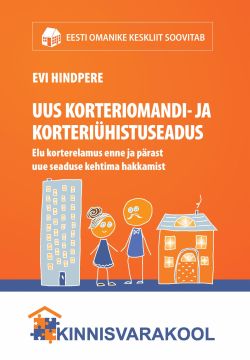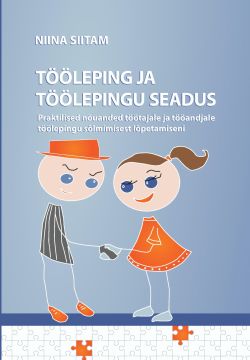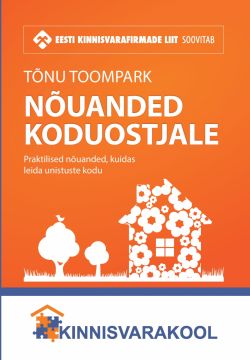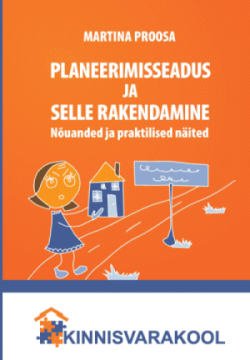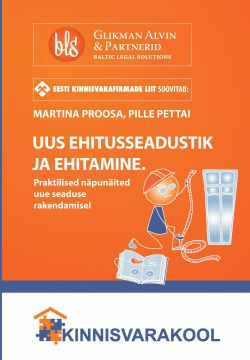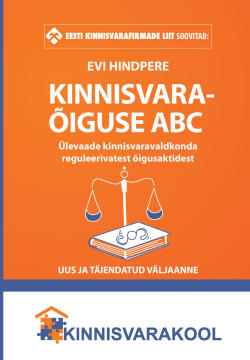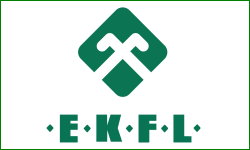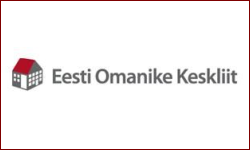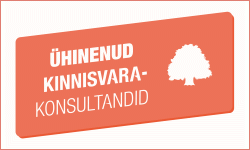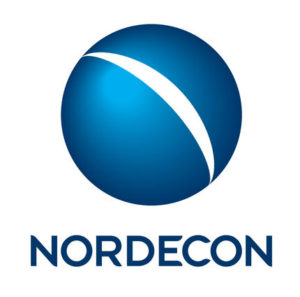 Nordecon’s sales revenue increased by approximately 26% in 2020 compared to the previous year, and this is the largest turnover of the Nordecon Group ever. The volume growth was based on contracts concluded in record volumes in 2019. The construction market in 2020 was characterised by significant volatility, where the record first quarter followed a sharp fall in demand in the second and third quarters and some recovery in the fourth quarter. The decrease in volumes exerts significant pressure on the margin of main contracting and competition in the sector is very high.
Nordecon’s sales revenue increased by approximately 26% in 2020 compared to the previous year, and this is the largest turnover of the Nordecon Group ever. The volume growth was based on contracts concluded in record volumes in 2019. The construction market in 2020 was characterised by significant volatility, where the record first quarter followed a sharp fall in demand in the second and third quarters and some recovery in the fourth quarter. The decrease in volumes exerts significant pressure on the margin of main contracting and competition in the sector is very high.
The profitability of the Nordecon Group in 2020 was influenced in addition to the general pressure on the margins of the main business by the activity in foreign markets. Restrictions on the movement of materials and labour affected by the COVID-19 pandemic extended the completion of the work carried out on the Swedish market, which had a significant impact on the decrease in the group’s gross profits compared to 2019. On the positive side, the profitability of the Infrastructure segment has increased, where market volumes have remained stable, and the Group’s asphalt concrete production and installation volumes exceeded those of previous periods.
The net profit of the Group continues to be influenced by the significant weakening of the Ukrainian hryvnia against the euro and the resulting exchange rate loss. As a significant positive event, the result was influenced by the profit earned from the sale of holding in the related company Pigipada OÜ.
The biggest influence in the demand for construction services continues to be the uncertainty regarding the future associated with the COVID-19 pandemic. The volume of public investment remains at the level of 2020, but private sector orders continue to decline. Nordecon Group had contracts for 216 million euros at the end of 2020, which is 5% lower than last year, but gives confidence for the forthcoming year.
Condensed consolidated interim statement of financial position
| EUR ‘000 | 31 December 2020 | 31 December 2019 |
| ASSETS | ||
| Current assets | ||
| Cash and cash equivalents | 12,576 | 7,032 |
| Trade and other receivables | 50,029 | 37,563 |
| Prepayments | 2,638 | 1,813 |
| Inventories | 22,454 | 21,142 |
| Total current assets | 87,697 | 67,550 |
|
Non-current assets |
||
| Investments in equity-accounted investees | 0 | 2,369 |
| Other investments | 26 | 26 |
| Trade and other receivables | 8,654 | 8,435 |
| Investment property | 5,639 | 5,530 |
| Property, plant and equipment | 18,053 | 19,002 |
| Intangible assets | 14,966 | 14,736 |
| Total non-current assets | 47,338 | 50,098 |
| TOTAL ASSETS | 135,035 | 117,648 |
| LIABILITIES | ||
| Current liabilities | ||
| Borrowings | 18,508 | 11,058 |
| Trade payables | 46,932 | 40,730 |
| Other payables | 12,232 | 7,954 |
| Deferred income | 7,738 | 6,391 |
| Provisions | 1,059 | 716 |
| Total current liabilities | 86,469 | 66,849 |
|
Non-current liabilities |
||
| Borrowings | 7,353 | 16,326 |
| Trade payables | 98 | 98 |
| Other payables | 2,233 | 177 |
| Provisions | 1,647 | 1,425 |
| Total non-current liabilities | 11,331 | 18,026 |
| TOTAL LIABILITIES | 97,800 | 84,875 |
| EQUITY | ||
| Share capital | 14,379 | 14,379 |
| Own (treasury) shares | -660 | -660 |
| Share premium | 635 | 635 |
| Statutory capital reserve | 2,554 | 2,554 |
| Translation reserve | 2,423 | 1,169 |
| Retained earnings | 14,543 | 12,383 |
| Total equity attributable to owners of the parent | 33,874 | 30,460 |
| Non-controlling interests | 3,361 | 2,313 |
| TOTAL EQUITY | 37,235 | 32,773 |
| TOTAL LIABILITIES AND EQUITY | 135,035 | 117,648 |
Condensed consolidated interim statement of comprehensive income
| EUR ‘000 | Q4 2020 |
12M 2020 |
Q4 2019 |
12M 2019 | ||
| Revenue | 78,418 | 296,082 | 61,271 | 234,071 | ||
| Cost of sales | -76,937 | -285,086 | -57,229 | -222,302 | ||
| Gross profit | 1,481 | 10,996 | 4,042 | 11,769 | ||
| Marketing and distribution expenses | -142 | -528 | -149 | -784 | ||
| Administrative expenses | -1,761 | -7,073 | -2,169 | -6,837 | ||
| Other operating income | 180 | 453 | 187 | 315 | ||
| Other operating expenses | -135 | -273 | -145 | -193 | ||
| Operating profit | -377 | 3,575 | 1,766 | 4,270 | ||
| Finance income | 2,725 | 2,995 | 62 | 1,277 | ||
| Finance costs | -576 | -2,678 | -213 | -1,219 | ||
| Net finance income | 2,149 | 317 | 151 | 58 | ||
| Share of profit/loss of equity-accounted investees | -232 | 734 | -37 | 585 | ||
| Profit before income tax | 1,540 | 4,626 | 1,578 | 4,913 | ||
| Income tax expense | -426 | -508 | -324 | -764 | ||
| Profit for the period | 1,114 | 4,118 | 1,254 | 4,149 | ||
| Other comprehensive income: Items that may be reclassified subsequently to profit or loss |
||||||
| Exchange differences on translating foreign operations | -121 | 1,254 | -42 | -823 | ||
| Total other comprehensive income/expense | -121 | 1,254 | -42 | -823 | ||
| TOTAL COMPREHENSIVE INCOME | 993 | 5,372 | 1,212 | 3,326 | ||
| Profit attributable to: | ||||||
| – Owners of the parent | 1,426 | 2,466 | 835 | 3,378 | ||
| – Non-controlling interests | -312 | 1,652 | 419 | 771 | ||
| Profit for the period | 1,114 | 4,118 | 1,254 | 4,149 | ||
| Total comprehensive income attributable to: | ||||||
| – Owners of the parent | 1,305 | 3,720 | 793 | 2,555 | ||
| – Non-controlling interests | -312 | 1,652 | 419 | 771 | ||
| Total comprehensive income for the period | 993 | 5,372 | 1,212 | 3,326 | ||
| Earnings per share attributable to owners of the parent: | ||||||
| Basic earnings per share (EUR) | 0.05 | 0.08 | 0.03 | 0.11 | ||
| Diluted earnings per share (EUR) | 0.05 | 0.08 | 0.03 | 0.11 | ||
Condensed consolidated interim statement of cash flows
| EUR ‘000 | 12M 2020 | 12M 2019 |
| Cash flows from operating activities | ||
| Cash receipts from customers | 345,967 | 277,941 |
| Cash paid to suppliers | -305,894 | -239,901 |
| VAT paid | -9,9090 | -6,816 |
| Cash paid to and for employees | -27,409 | -22,989 |
| Income tax paid | -291 | -232 |
| Net cash from operating activities | 2,464 | 8,003 |
| Cash flows from investing activities | ||
| Paid on acquisition of property, plant and equipment | -254 | -594 |
| Acquisition of intangible assets | -17 | 0 |
| Proceeds from sale of property, plant and equipment | 332 | 377 |
| Cash received on acquisition of a subsidiary | 3,605 | 0 |
| Proceeds from sale of an investment in an associate | 3,596 | 0 |
| Loans provided | -17 | -74 |
| Repayment of loans provided | 44 | 13 |
| Dividends received | 974 | 489 |
| Interest received | 11 | 9 |
| Net cash from investing activities | 8,274 | 220 |
| Cash flows from financing activities | ||
| Proceeds from loans received | 2,026 | 3,705 |
| Repayment of loans received | -2,629 | -4,032 |
| Lease payments made | -3,086 | -3,276 |
| Interest paid | -936 | -1,004 |
| Dividends paid | -472 | -2,360 |
| Reduction of share capital | 0 | -1,892 |
| Other payments | -77 | -4 |
| Net cash used in financing activities | -5,174 | -8,863 |
| Net cash flow | 5,564 | -638 |
| Cash and cash equivalents at beginning of period | 7,032 | 7,678 |
| Effect of movements in foreign exchange rates | -20 | -8 |
| Increase in cash and cash equivalents | 5,563 | -638 |
| Cash and cash equivalents at end of period | 12,576 | 7,032 |
Proposals for a dividend distribution and the reduction of share capital
Having agreed it with the council, the board proposes that the shareholders distribute in 2021 a dividend of 0.06 euros per share (1,892 thousand euros in total) for 2020. Own (treasury) shares do not give the company any shareholder rights.
In addition, the Group’s ultimate controlling party has notified the board of its intention to propose at the annual general meeting a motion for reducing the share capital of Nordecon AS by 972 thousand euros (0.03 euros per share). If the motion is approved, share capital will decrease from 14,379 thousand euros to 13,407 thousand euros. According to the motion, share capital will be reduced by reducing the book value of the shares so that the number of the shares will remain the same, i.e. 32,375,483 shares, including the 846,898 own (treasury) shares held at 31 December 2020.
Financial review
Financial performance
Nordecon ended the year 2020 with a gross profit of 10,996 thousand euros (2019: 11,769 thousand euros). Gross margin for the financial year was 3.7% (2019: 5.0%). The gross margin of the Infrastructure segment improved, rising to 5.1% for 2020 and 6.1% for the fourth quarter (2019: 3.5%, Q4 2019: 1.9%). The gross margin of the Buildings segment, on the other hand, fell sharply, dropping to 3.6% for 2020 and 0.7% for the fourth quarter (2019: 6.3%, Q4 2019: 8.8%). The Infrastructure segment’s performance was supported by an earlier start of the road construction season and a strong order book. Even though market players’ capacity to produce asphalt concrete continues to exceed market demand, the Group’s asphalt concrete output grew year on year, providing cover for fixed costs, the largest share of which is made up of costs related to the plant and equipment required for asphalt concrete production and laying. The low profitability of the Buildings segment, which had a strong impact on the Group’s results for 2020, is attributable to some unsuccessful projects in the Swedish market. The weak performance of the Swedish market was largely due to the COVID-19 pandemic and its impacts on the economic environment. Mobility restrictions disrupted the Group’s management of its Swedish operations as well as the movement of the projects’ subcontractors, which were mostly from Estonia. This delayed the performance of the projects and caused the Group additional unbudgeted site costs, which customers did not cover in full.
The Group’s administrative expenses for 2020 totalled 7,073 thousand euros. Compared to 2019, administrative expenses increased by around 3.5% (2019: 6,837 thousand euros). The rise is attributable to the fact that Embach Ehitus OÜ became a subsidiary. The ratio of administrative expenses to revenue (12 months rolling) was 2.4% (2019: 2.9%).
The Group’s operating profit 2020 was 3,575 thousand euros (2019: 4,270 thousand euros). EBITDA amounted to 7,003 thousand euros and EBITDA margin was 2.4% (2019: 7,311 thousand euros and 3.1%).
Finance income for 2020 was influenced by the sale of the Group’s investment in the associate Pigipada OÜ at the end of the year. Gain on the transaction amounted to 2,749 thousand euros. Finance income and expenses for the year were also strongly affected by exchange rate fluctuations in the Group’s foreign markets, particularly the movements in the exchange rate of the Ukrainian hryvnia, which weakened against the euro by around 24%. Translation of the loans provided to the Group’s Ukrainian subsidiaries in euros gave rise to an exchange loss of 1,485 thousand euros in 2020 (2019: a gain of 1,044 thousand euros). The Group’s total exchange loss for the year was 1,509 thousand euros (2019: 196 thousand euros). The movements in foreign exchange rates also increased the translation reserve in equity by 1,254 thousand euros (2019: reduced by 823 thousand euros).
The Group earned a net profit of 4,118 thousand euros (2019: 4,149 thousand euros). The profit attributable to owners of the parent, Nordecon AS, was 2,466 thousand euros (2019: 3,378 thousand euros).
Cash flows
Operating activities produced a net cash inflow of 2,464 thousand euros in 2020 (2019: an inflow of 8,003 thousand euros). The key factor that affects operating cash flow is the mismatch between the settlement terms agreed with customers and suppliers. Operating cash flow is also strongly influenced by the fact that the contracts signed with most public and private sector customers do not require them to make advance payments while the Group has to make prepayments to subcontractors and materials suppliers. In 2020, the share of prepayments increased due to the COVID-19 pandemic. Cash inflow is also reduced by contractual retentions, which extend from 5 to 10% of the contract price and are released at the end of the construction period only.
Investing activities resulted in a net cash inflow of 8,274 thousand euros (2019: an inflow of 220 thousand euros). Transactions with the strongest impact were the transformation of Embach Ehitus OÜ from an associate into a subsidiary, which generated cash inflow of 3,605 thousand euros, and the sale of the investment in the associate Pigipada OÜ, which generated inflow of 3,596 thousand euros. Investments in the acquisition of property, plant and equipment and intangible assets totalled 271 thousand euros (2019: 594 thousand euros) and proceeds from the sale of property, plant and equipment amounted to 332 thousand euros (2019: 377 thousand euros). Dividends received amounted to 974 thousand euros (2019: 489 thousand euros).
Financing activities generated a net cash outflow of 5,174 thousand euros (2019: an outflow of 8,863 thousand euros). The largest items were loan and lease payments. Proceeds from loans received totalled 2,026 thousand euros, comprising the use of overdrafts and development loans (2019: 3,705 thousand euros). Loan repayments totalled 2,629 thousand euros (2019: 4,032 thousand euros), consisting of regular repayments of long-term investment and development loans. Lease payments totalled 3,086 thousand euros (2019: 3,276 thousand euros). Dividends paid in 2020 amounted to 472 thousand euros (2019: 2,360 thousand euros). Cash flows of the comparative period, 2019, were also influenced by payments of 1,892 thousand euros made in connection with the reduction of share capital.
The Group’s cash and cash equivalents totalled 12,576 thousand euros at 31 December 2020 (31 December 2019: 7,032 thousand euros).
Key financial figures and ratios
| Figure/ratio | 2020 | 2019 | 2018 | |
| Revenue (EUR ‘000) | 296,082 | 234,071 | 223,496 | |
| Revenue change | 26.5% | 4.7% | -3.4% | |
| Net profit (EUR ‘000) | 4,118 | 4,149 | 3,821 | |
| Net profit attributable to owners of the parent (EUR ‘000) | 2,466 | 3,378 | 3,381 | |
| Average number of shares | 31,528,585 | 31,528,585 | 31,528,585 | |
| Earnings per share (EUR) | 0.08 | 0.11 | 0.11 | |
| Administrative expenses to revenue | 2.4% | 2.9% | 3.0% | |
| EBITDA (EUR ‘000) | 7,003 | 7,311 | 6,021 | |
| EBITDA margin | 2.4% | 3.1% | 2.7% | |
| Gross margin | 3.7% | 5.0% | 4.5% | |
| Operating margin | 1.2% | 1.8% | 1.8% | |
| Operating margin excluding gain on asset sales | 1.1% | 1.7% | 1.3% | |
| Net margin | 1.4% | 1.8% | 1.7% | |
| Return on invested capital | 9.3% | 10.0% | 8.4% | |
| Return on equity | 11.8% | 12.5% | 11.2% | |
| Equity ratio | 27.6% | 27.9% | 32.4% | |
| Return on assets | 3.3% | 3.7% | 3.5% | |
| Gearing | 21.1% | 33.8% | 28.5% | |
| Current ratio | 1.01 | 1.01 | 1.12 | |
| As at 31 December | 2020 | 2019 | 2018 | |
| Order book (EUR ‘000) | 215,796 | 227,545 | 100,352 | |
Performance by geographical market
Revenue generated outside Estonia accounted for approximately 18% of the Group’s total revenue, which is the highest level for recent years’.
| 2020 | 2019 | 2018 | |
| Estonia | 82% | 89% | 93% |
| Sweden | 11% | 5% | 2% |
| Finland | 6% | 4% | 1% |
| Ukraine | 1% | 2% | 4% |
Revenue generated in Sweden has increased year on year, driven by two new general contracts for the construction of apartment buildings and a concrete works subcontract for the construction of foundations for 73 turbines in a wind farm being built in northern Sweden, all signed in 2019. The revenue contribution of the Finnish market has increased as well: a significant share of it resulted from contracts for the construction of the Raitinkartano commercial and residential building and two farm complexes. The revenue contribution of the Ukrainian market has decreased by about a half compared to 2019.
Geographical diversification of the revenue base is a consciously deployed strategy by which we mitigate the risks resulting from excessive reliance on a single market. However, conditions in some of our chosen foreign markets are also volatile and affect our current results. Increasing the contribution of foreign markets is one of Nordecon’s strategic goals.
Performance by business line
Segment revenues
We strive to maintain the revenues of our operating segments (Buildings and Infrastructure) as balanced as possible because this helps us diversify risks and provides better opportunities for continuing construction operations in more challenging market conditions where the volumes of one or several sub-segments substantially decline.
The Group ended 2020 with revenue of 296,082 thousand euros, a roughly 26% improvement on the 234,071 thousand euros generated in 2019. The Buildings segment increased its revenue by around 34% and the Infrastructure segment by around 7%. In 2020, the Buildings and Infrastructure segments generated revenue of 228,515 thousand euros and 67,142 thousand euros, respectively. The corresponding figures for 2019 were 170,647 thousand euros and 63,063 thousand euros. The current revenue structure is also reflected in the Group’s order book, where the Buildings segment continues to dominate.
| Operating segments | 2020 | 2019 | 2018 |
| Buildings | 72% | 70% | 72% |
| Infrastructure | 28% | 30% | 28% |
Subsegment revenues
In the Buildings segment, revenue generated by the commercial buildings subsegment decreased while revenue generated by other subsegments increased compared to 2019. The largest subsegment in terms of revenue was public buildings, which accounted for over a third of total segment revenue and showed 67% year-on-year revenue growth. During the year, we completed and delivered on time the buildings of the Estonian Academy of Security Sciences and the University of Tartu Learning Centre in Narva, phase I of Kindluse Kool – a basic school in Järveküla near Tallinn, the Annelinn upper secondary school in Tartu and a storage complex for the defence forces’ base at Tapa. The largest projects in progress in the public buildings subsegment are the construction of a sports and health centre at Kohtla-Järve, a family health centre in Tartu, and an extension to the building of the Estonian Foreign Intelligence Service in Rahumäe tee in Tallinn, and the reconstruction of two schools in East Ukraine.
A significant share of our Estonian apartment building projects is located in Tallinn. During the period under review, the largest of them were the design and construction of the first two phases of the Kalaranna quarter, and the design and construction of the Tiskreoja residential area on the western border of Tallinn. A large share of the subsegment’s revenue also came from the construction of apartment buildings in Sweden.
We continue to build our own housing development projects in Tallinn and Tartu (reported in the apartment buildings subsegment). During the period, we completed a five-floor apartment building with 24 apartments at Võidujooksu 8c in Tallinn (www.voidujooksu.ee). Revenue from our own real estate development operations amounted to 2,866 thousand euros (2019: 6,528 thousand euros). The uncertainty of the economic environment, caused by the COVID-19 pandemic, has also affected our development operations. The construction of the Mõisavahe Kodu (https://moisavahe.ee) project, which started at the beginning of the year, continued in the autumn after a break of around six months. In carrying out our own real estate development activities, we closely monitor potential risks in the housing development market.
The largest projects of the commercial buildings subsegment were in Tallinn in 2020. We completed and delivered on time the building of Terminal D in the Old City Harbour, phase I of the Porto Franco commercial and office development next to the Admiralty Basin, and a multi-storey car park at Sepapaja 1 in Tallinn. Work continues on a seven-floor commercial building in Rotermann City.
Although the amount and share of revenue generated by the industrial and warehouse facilities subsegment remained modest compared to other subsegments, its revenue grew more than two times compared to 2019. Still, the costs of projects in progress are small, amounting to 2 million euros on average.
| Revenue breakdown in the Buildings segment | 2020 | 2019 | 2018 |
| Public buildings | 37% | 29% | 25% |
| Apartment buildings | 28% | 27% | 25% |
| Commercial buildings | 23% | 36% | 35% |
| Industrial and warehouse facilities | 12% | 8% | 15% |
Although the largest revenue contributor in the Infrastructure segment is still road construction and maintenance, its proportionate contribution has decreased year on year. A major share of its revenue results from road rehabilitation contracts of 2 to 3 million euros each. The largest projects in progress include a contract secured in 2019 for the construction of the Kernu bypass as well as the Kernu filling station and Haiba junctions on the Tallinn-Pärnu-Ikla road, and a contract signed this year for the construction of the Väo junction on the eastern border of Tallinn. Construction of the latter will continue in 2021. In addition to road construction and maintenance, the subsegment builds infrastructure assets for the defence forces and improves forest roads under a number of small contracts signed with the State Forest Management Centre. The Group also continues to provide road maintenance services in Järva and Hiiu counties and the Kose maintenance area in Harju county.
Other engineering revenue is strongly influenced by the construction of foundations for 73 wind turbines in the Nysäter wind farm, which is being built in northern Sweden, near Sundsvall.
A significant share of specialist engineering revenue resulted from the construction of a 640-metre waterfront promenade at Sillamäe.
| Revenue breakdown in the Infrastructure segment | 2020 | 2019 | 2018 |
| Road construction and maintenance | 74% | 78% | 89% |
| Other engineering | 21% | 18% | 7% |
| Specialist engineering (including hydraulic engineering) | 4% | 1% | 0% |
| Environmental engineering | 1% | 3% | 4% |
Order book
The Group’s order book (backlog of contracts signed but not yet performed) stood at 215,796 thousand euros at 31 December 2020, a 5% decrease year on year. In 2020, we signed new contracts of 236,577 thousand euros, of which contracts of 55,511 thousand euros in the fourth quarter. The corresponding figures for 2019 were 305,695 thousand euros and 75,083 thousand euros. The Group was equally successful in winning both public and private contracts.
| As at 31 December | 2020 | 2019 | 2018 |
| Order book (EUR ‘000) | 215,796 | 227,545 | 100,352 |
At 31 December 2020, the order books of the Buildings segment and the Infrastructure segment accounted for 81% and 19% of the Group’s total order book, respectively (31 December 2019: 85% and 15%, respectively). Compared to 31 December 2019, the order book of the Infrastructure segment has grown by around 19% while the order book of the Buildings segment has decreased by around 10% due to an almost twofold decline in the order book of the apartment buildings subsegment.
The order book of the public buildings subsegment accounts for roughly 40% of the order book of the Buildings segment. The subsegment’s order book is strongly influenced by the contracts secured in the third quarter for the construction of phase III of the Maarjamõisa Medical Campus of the Tartu University Hospital with a cost of 47.3 million euros, the construction of an academic building for an upper secondary school in Kuressaare on the island of Saaremaa and the design and construction of a barracks for 300 people in the defence forces base at Paldiski. The order books of the commercial buildings and the industrial and warehouse facilities subsegments have remained at the same level as at 31 December 2019. A significant share of the order book of the industrial and warehouse facilities subsegment is made up of a contract for the construction of a dairy complex for E‑Piim in Paide. The order book of the commercial buildings subsegment is dominated by the construction of a new seven-floor commercial building in Rotermann City in Tallinn and a contract of over 22 million euros secured in the fourth quarter for the construction of the Alma Tomingas office building in conformity with the requirements of the LEED Gold certificate at Sepise 7 in Ülemiste City in Tallinn. A major share of the order book of the apartment buildings subsegment is made up of a contract of around 40 million euros for the design and construction of the first two phases of the Kalaranna quarter in Tallinn and the construction of the next phases of the Tiskreoja residential area on the western border of Tallinn.
The order book of the road construction and maintenance subsegment accounts for 87% of the order book of the Infrastructure segment. In the fourth quarter, the Group signed a contract of around 9.5 million euros for the performance of earthworks at the Võõbu-Mäo road construction site on the Võõbu-Anna section of Tartu road and a contract for the reconstruction of the Sillamäe city section of national road no. 1 Tallinn-Narva (km 184.7-187.5). The subsegment’s order book is also strongly influenced by a contract secured in the second quarter for the construction of the Väo junction on the eastern border of Tallinn. The Group continues to provide road maintenance services in three road maintenance areas: Järva, Hiiu and Kose. We have signed a new five-year contract for maintaining national roads in the Järva maintenance area. The contract involves year-round maintenance of around 950 km of national roads in Järva county. Based on the rates for 2020, the total cost of the contract is around 10.7 million euros.
Based on the size of the Group’s order book, including the share of work to be performed in 2022, and fierce competition in the general contracting market, the Group’s management expects that in 2021 the Group’s revenue will decline somewhat compared to 2020. Customers are increasingly expecting that general contractors should lower their prices but the input prices charged by subcontractors have not decreased as anticipated. This has put profit margins under strong pressure. In an environment of stiff competition, we have avoided taking unjustified risks whose realisation in the contract performance phase would have an adverse impact on the Group’s results. Our main focus is on cost control and pre-construction and design activities where we can harness our professional competitive advantages.
People
Employees and personnel expenses
In 2020, the Group (the parent and the subsidiaries) employed, on average, 708 people, including 450 engineers and technical personnel (ETP). Headcount increased by around 3% compared to 2019. The number of engineers and technical personnel grew due to a change in the Group’s structure: Embach Ehitus OÜ became a subsidiary, which increased the group’s workforce by 43 employees:
Average number of employees at Group entities (including the parent and the subsidiaries):
| 2020 | 2019 | 2018 | |
| ETP | 450 | 414 | 419 |
| Workers | 258 | 273 | 268 |
| Total average | 708 | 687 | 687 |
The Group’s personnel expenses for 2020, including all taxes, totalled 27,130 thousand euros. The figure for 2019 was 25,323 thousand euros. Personnel expenses grew by around 7% year on year, mainly in connection with Embach Ehitus OÜ becoming a subsidiary and the payment of project-based performance bonuses.
The service fees of the members of the council of Nordecon AS for 2020 amounted to 165 thousand euros and associated social security charges totalled 54 thousand euros (2019: 187 thousand euros and 62 thousand euros, respectively).
The service fees of the members of the board of Nordecon AS amounted to 432 thousand euros and associated social security charges totalled 143 thousand euros (2019: 480 thousand euros and 158 thousand euros, respectively).
Labour productivity and labour cost efficiency
We measure the efficiency of our operating activities using the following productivity and efficiency indicators, which are based on the number of employees and personnel expenses incurred:
| 2020 | 2019 | 2018 | |
| Nominal labour productivity (rolling), (EUR ‘000) | 422.2 | 340.6 | 325.4 |
| Change against the comparative period, % | 24.0% | 4.7% | 3.3% |
| Nominal labour cost efficiency (rolling), (EUR) | 10.9 | 9.2 | 9.7 |
| Change against the comparative period, % | 17.9% | -5.0% | -3.8% |
The Group’s nominal labour productivity and nominal labour cost efficiency improved significantly year on year. The rise is attributable to revenue growth.
Nordecon (www.nordecon.com) is a group of construction companies whose core business is construction project management and general contracting in the buildings and infrastructures segment. Geographically the Group operates in Estonia, Sweden, Finland and Ukraine. The parent of the Group is Nordecon AS, a company registered and located in Tallinn, Estonia. The unaudited consolidated revenue of the Group in 2020 was 296 million euros. Currently Nordecon Group employs close to 710 people. Since 18 May 2006 the company’s shares have been quoted in the main list of the NASDAQ Tallinn Stock Exchange.




